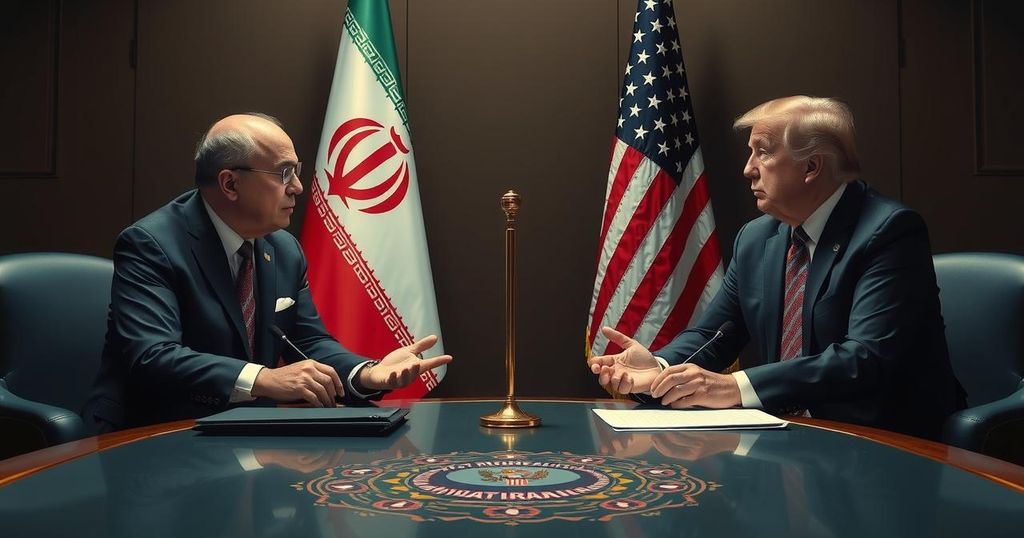Iran’s Foreign Minister Abbas Araghchi declared that Iran will not negotiate with the U.S. on nuclear issues unless it reverts to the JCPOA. Instead, Iran will engage with European partners, China, and Russia to revive negotiations. The JCPOA, signed in 2015, faces complications following the U.S. exit in 2018, and negotiations have stalled due to disagreements over sanctions removal.
Iranian Foreign Minister Abbas Araghchi recently articulated the Iranian government’s stance on negotiations concerning its nuclear program and associated sanctions. He stated that discussions will not proceed with the United States until it reverts to compliance with the Joint Comprehensive Plan of Action (JCPOA) or clarifies its policy on the matter. Instead, Iran will continue negotiations with European countries, as well as China and Russia, as part of a broader strategy to revive the nuclear agreement.
In a televised interview, Araghchi emphasized that Iran has remained committed to engaging in discussions concerning its nuclear program, highlighting that assurances have consistently been provided regarding the peaceful nature of their nuclear endeavors. He pointed out that the Iranian side engaged in talks with the United Kingdom, France, and Germany, alongside discussions with EU representatives, aiming to uncover pathways for the resumption of nuclear negotiations.
The JCPOA, established in 2015 between Iran and the permanent members of the UN Security Council plus Germany, faces challenges particularly since the former U.S. administration withdrew from the agreement in 2018. Current President Joe Biden has indicated openness to restoring the deal, but negotiations have stagnated due to the United States’ firm position on not rescinding all sanctions imposed on Iran. There remains an urgent need for assurances from the United States to maintain commitment to any future agreements.
The discussions surrounding Iran’s nuclear issue are deeply rooted in geopolitical dynamics and the 2015 JCPOA agreement, which was designed to prevent Iran from developing nuclear weapons in exchange for relief from economic sanctions. The withdrawal of the United States from this agreement in 2018 under Donald Trump’s administration marked a significant shift, leading to heightened tensions and ongoing negotiations among various international powers seeking to reinstate the deal. As of April 2021, Vienna has been the focal point for diplomatic efforts aimed at reviving the curtailed JCPOA, amidst ongoing disputes over sanctions and compliance conditions.
In summary, Iran’s refusal to engage in nuclear negotiations with the United States unless it returns to the JCPOA is a critical juncture in ongoing diplomatic efforts. By negotiating with European nations and other powers such as China and Russia, Iran seeks to reinforce its position while demanding assurances from the U.S. regarding the lifting of sanctions. The future of the nuclear negotiations remains uncertain as key stakeholders work to bridge their differences.
Original Source: en.mehrnews.com






